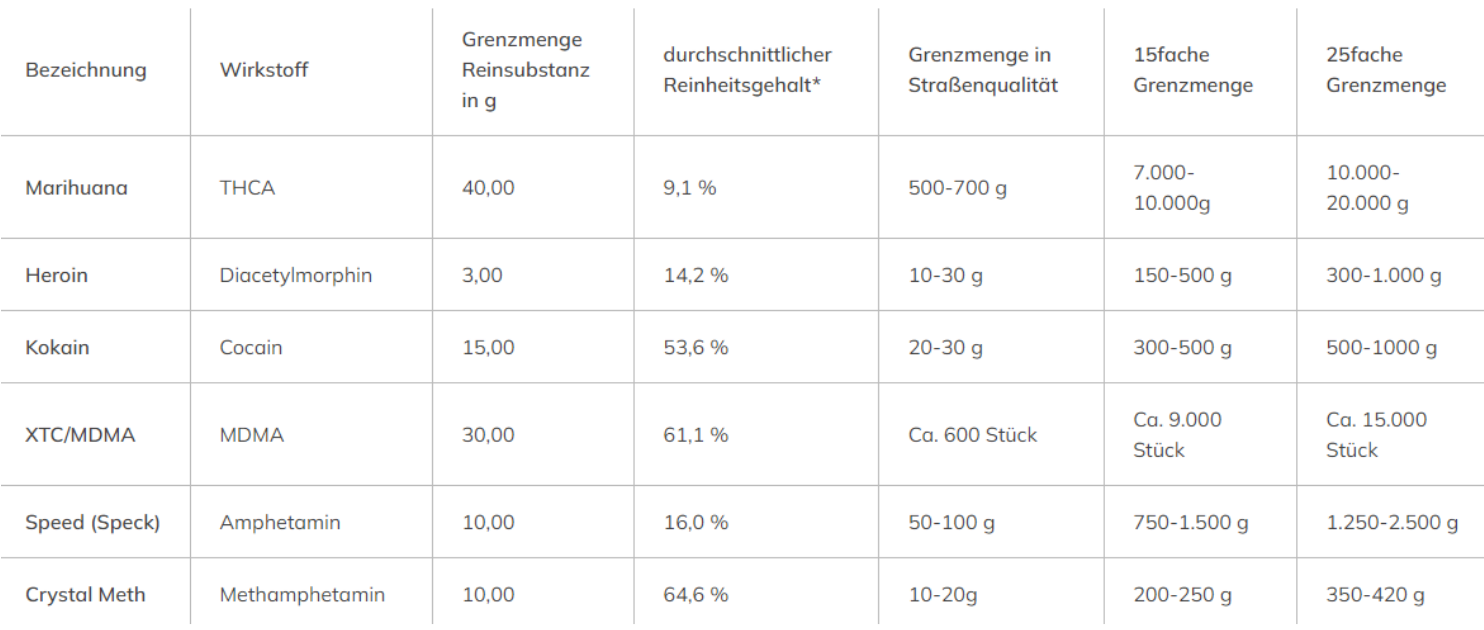Narcotics Law

Contrary to widespread opinion, criminal liability does not require a qualified quantity of drugs. Even the smallest measurable quantities of addictive substances are subject to the criminal law regime.
Possession, production, transport, introduction (i.e. crossing the border), execution as well as offering, transferring and procuring of prohibited narcotics (drugs) of any kind is punishable.
Trafficking in narcotic drugs is punished much more severely, especially in the case of larger quantities and when the narcotic drug crosses a border. There are lighter penalties for users who either possess drugs only for their own use or trade them to finance their own addiction.
Exceeding so-called "limit quantities" has a qualifying effect and leads to a much higher threat of punishment. The limit quantity is based in each case on the pure substance.
If the "threshold quantity" is not exceeded - whether by a single act or a series of acts - the public prosecutor is generally obliged to discontinue the criminal proceedings if the act was committed exclusively for the defendant's own use or for the personal use of another person without the defendant having derived any benefit from it (Section 35 SMG).
The penalties for exceeding the limit by a factor of 15 or 25 are significantly stricter.
Values and limits of common addictive poisons:

* Average purity of seized narcotic drugs 2021 according to Narcotics Report 2021; street quality may be significantly lower than these values.
Defense Strategy:
Many convictions in this context are largely based on the statements made by the convicted person to the police. Especially in the case of drug-related offenses, it often makes sense - for the time being - to make use of the right to refuse to testify and to wait for the final police report (a mitigating confession can also be made only at the trial!).
If, after inspecting the files, the defense attorney comes to the conclusion that there is clear evidence for the accusations made against the defendant, the defense strategy should no longer be geared toward an acquittal. In this case, it is advisable to plead guilty.
In this case, the strategy should be designed to obtain a sentence that is as lenient as possible, or there are special forms of execution in the criminal law on narcotics in order to comply with the principle of "therapy instead of punishment":
- Provisional withdrawal from prosecution by the public prosecutor's office
- Provisional suspension by the court
- Deferment of execution of the sentence
- Subsequent conditional leniency and waiver of revocation
